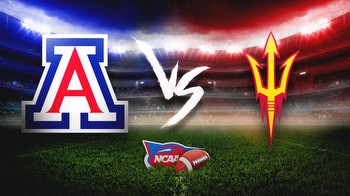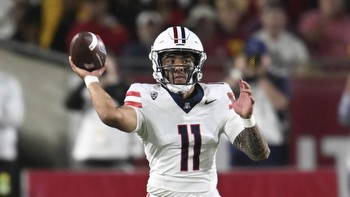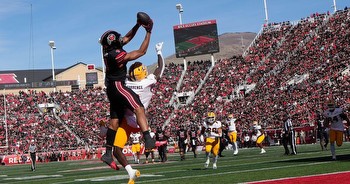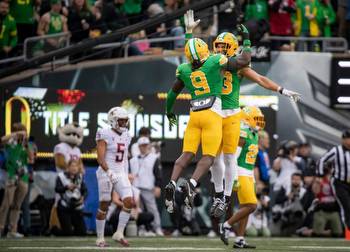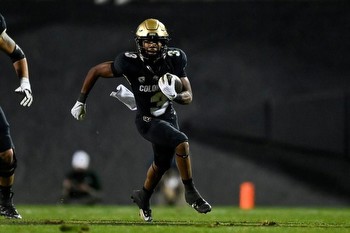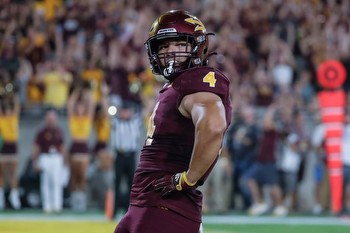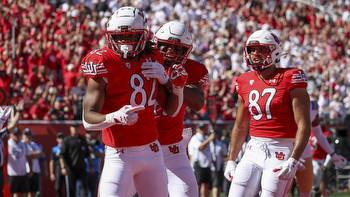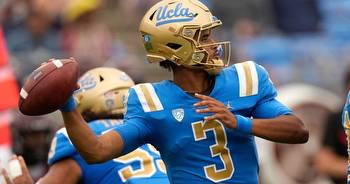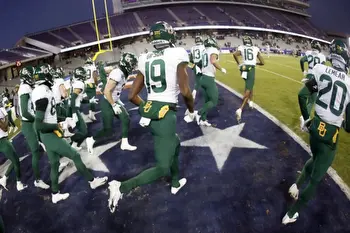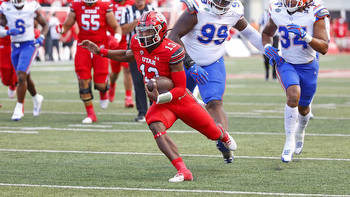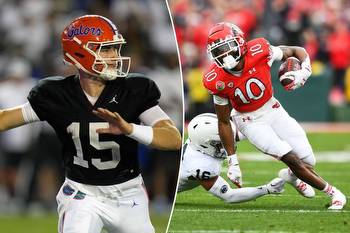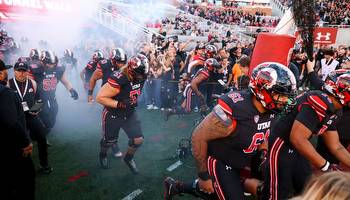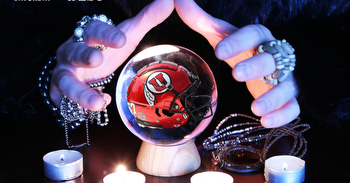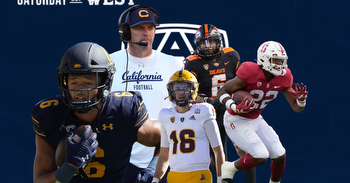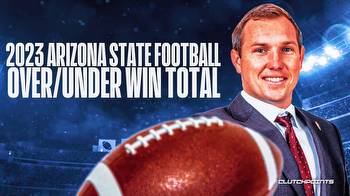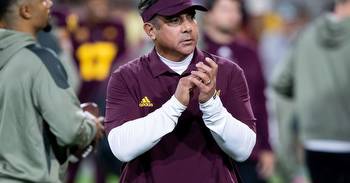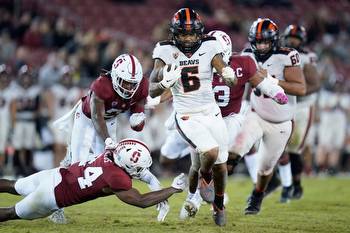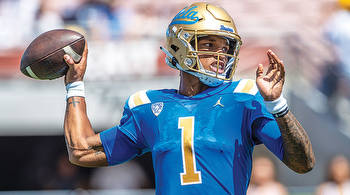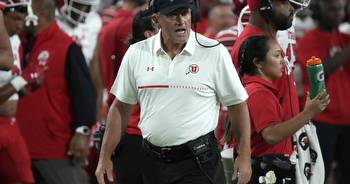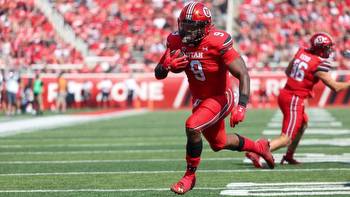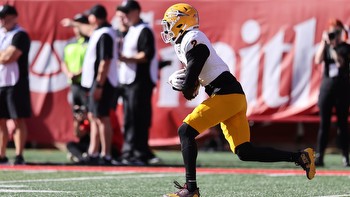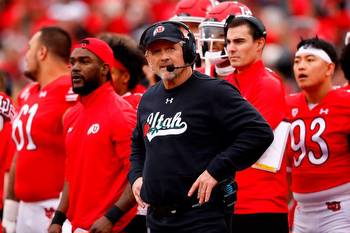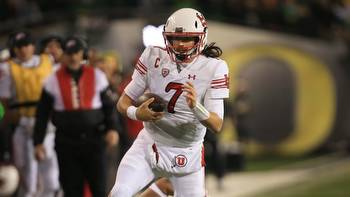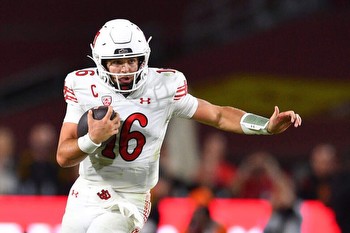ASU Sun Devils vs Utah Utes football game recap
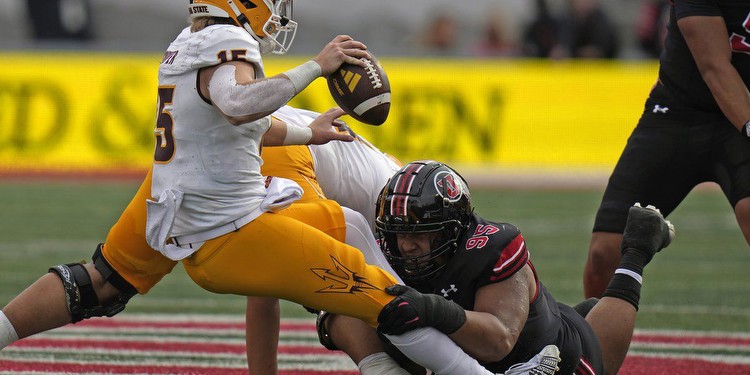
SALT LAKE CITY, UT (3TV/CBS 5) -- “This is not OK.”
No, it most certainly was not.
At 2-6 and ravaged by injuries through the season, Arizona State entered Saturday’s game against No. 18 Utah as the clear underdog. But from the first moments of the game until a touchdown with just seconds left on the clock, the Utes manhandled the Sun Devils in a historic 55-3 rout. It was the largest margin of defeat in ASU’s history as a member of the Pac-10/12 Conference that began in 1978.
“Everybody should be embarrassed,” said ASU defensive back Jordan Clark.” Everybody should understand that this is not OK at all.”
While the normally-stout Sun Devil defense was being run over—surrendering a season-high 352 rushing yards—the offense was setting records for ineptitude. On an afternoon in which their starting quarterback was injured on the third play and most of their top offensive linemen were out, ASU gained just 83 yards on the afternoon, the second-fewest in a game in program history. (No, there isn’t a missing digit in that number.)
The loss drops ASU to 2-7 in Kenny Dillingham’s first year as head coach. But despite the momentum from last week’s win now firmly stopped, Dillingham believes that the team Utah beat up on Saturday is not a true reflection of his Sun Devils.
“Everybody is going to look at the box score and say that’s who we are,” said Dillingham. “We got to be able to distract ourselves from that and just know that’s not who we are. We have to go back to work.”
With just three games left in the season, the work needs to produce results immediately.
“If you can’t block them, and you can’t tackle them, nothing else matters.” - Kenny Dillingham
Utah got off to a fast start. Using an up-tempo approach, quarterback Bryson Barnes hit on a pair of passes to get into ASU territory. Aided by a personal foul, Utah moved to the 12-yard line, where Barnes found a wide open Devaughn Vele for the score.
Disaster then struck the Sun Devils on their first drive. On a third down pass play, quarterback Trenton Bourguet was hit and left the game with an injury to his left leg.
“You’re facing one of the best lines and fronts in football, and you’re down eight (offensive linemen),” said Dillingham, “and I have to find a way to help them more.”
The Ute ground game, and another personal foul by ASU, immediately got Utah into Sun Devil territory. On a third-and-goal from the ASU 3-yard line, Barnes found Vele again in the back of the endzone to increase the lead to 14-0 halfway through the opening quarter.
ASU was then able to stem the tide a bit. Elijhah Badger took the ensuing kickoff 78 yards to the Utah 21. However, the offense—now with fourth-stringer Jacob Conover at quarterback—was unable to move much and settled for a Dario Longhetto field goal to get on the board.
“We really couldn’t do one thing offensively,” Dillingham said. “(Utah) knew what they were doing. They knew they could take away our free plays with just field and boundary pressures.”
After the teams traded punts on the next two drives, Utah’s ground game got going, led by the legs of Barnes, who had a pair of 17-yard runs. The drive stalled after a post-play personal foul on Utah’s Sataoa Laumea, and a field goal try by Cole Becker from 37 yards was missed.
ASU quickly went three-and-out on their next drive. Utah again found success on the ground, but the Sun Devil defense forced another field goal attempt. This time, Becker was accurate from 30 yards.
Bourguet returned to the game for one drive and had an apparent interception overturned on review. Taking over late in the half, Barnes marched the Utes down the field. On a second-and-5 from the ASU 20, he fired a pass to Munir McClain, who made a sensational catch over Ro Torrence for the touchdown just before halftime.
The bleeding continued after the break. A quick three-and-out by ASU set Utah up near midfield, and on the first play from scrimmage, Ja’Quinden Jackson ran untouched 54 yards for a touchdown.
“They were hitting creases. That was it,” Dillingham said of Utah’s run game.
The teams then traded punts again before ASU had more glimmers of hope snuffed out. Melquan Stovall had a 72-yard punt return for a touchdown called back on a holding penalty, and then a deep pass from running back Cam Skattebo to Troy Omeire was negated by an offensive pass interference flag. On the next play, Conover’s deep pass was intercepted. Utah managed to turn that possession into another field goal.
The fourth quarter brought no relief.
ASU’s offense continued to be totally shut down, with a punt and two turnovers on downs—with two of those drives gaining less than 10 yards. Meanwhile, Utah continued to score. Barnes connected on his fourth touchdown of the day, a 2-yard pass to Landen King early in the quarter, and two game minutes later, Nate Johnson ran 59 yards for another score.
The final insult was a 22-yard touchdown run by Charlie Vincent with just eight seconds left on the clock.
Last week, ASU set season highs across the board with their 38-point, 509-yard performance against Washington State, with Bourguet leading a balanced attack.
Like last week, ASU’s opponent struck first, but hopes of a repeat performance quickly died. On ASU’s third play from scrimmage, Utah defensive end Jonah Elliss beat right tackle Joey Ramos for a hit on Bourguet, knocking the quarterback from the game.
Although he returned for one series, Bourguet did not return and was observed on crutches and a walking boot on his left football postgame. The loss of the veteran quarterback could be the latest major blow in a season marred by injury.
It was bad. So, so bad. Historically bad.
Although he practiced during the week, starting left tackle Isaia Glass did not make the trip to Utah, further depleting an already beleaguered offensive line down seven key members. Going against a fierce defensive front, ASU failed to compete in the trenches, derailing the entire offense.
ASU’s run game managed just 43 yards on the ground. The quarterbacks had little, if any time, to go through reads in the passing game. The Sun Devils converted just one of 15 third-down attempts. Utah registered four sacks and six tackles for loss.
“Not being able to do anything, throw it, run it, anything offensively is tough,” said Dillingham. “It’s hard to get up and go when you can’t block them.”
In relief of Bourguet, Conover completed just five of 22 passes for 41 yards and an interception. For stretches in the second half, ASU used running back Cam Skattebo—designated by Dillingham as the team’s fifth quarterback—in an attempt to find something that could work.
“We were just trying to create a spark in any way, and he was really the next man up,” Dillingham.
The offensive improvements shown in the weeks since Dillingham assumed playcalling duties have been largely characterized by an emphasis on getting the ball to the team’s top playmakers. That also failed, as their top receiver, Elijhah Badger, logged one catch and one run, each for one yard. Star tight end Jalin Conyers did not have a catch. Skattebo had just 31 yards on 12 carries. ASU’s longest play was a 20-yard catch by Gio Sanders to convert ASU’s lone third down.
There was not a single bright spot on that side of the ball. Well, perhaps there was one. The players, in the face of a wildly frustrating day, continued to compete hard each drive.
“Those guys competed, and I’m proud of them,” Clark said of his teammates on offense. “In those situations, we have to stand up and be great on defense, and we didn’t do that today.”
Under defensive coordinator Brian Ward, ASU has fielded one of the better defenses in the Pac-12. The success was to such a level that the school rewarded him with a three-year contract extension this past week. The first game since the ink was put to paper was unlike anything we’ve seen this year.
Utah gashed the Sun Devils from the opening drive, finding wide running lanes and open receivers downfield.
“We have to execute from the jump as a defense,” Clark said. “We weren’t doing what Coach was asking of us. It wasn’t a coaching thing. It was definitely us. We have to get back to work this week and correct it.”
The Utes gained 513 yards, averaging 6.7 yards per play. ASU couldn’t consistently get Utah off the field, with the Utes converting 10 of 16 third downs. Most damning of all, Utah rushed for 352 yards. Clark attributed much of those struggles on a domino effect of some players trying to do too much.
“Guys just not doing their job,” said Clark. “We had some mishaps at the beginning, and then people just tried to overcompensate and help other people do their job. We should just play one-eleven football like Coach says and do our job. Whenever you try to do somebody else’s job, it has even more people out of position. It’s on us.”
“It was just a lot of mental errors on us, a far as fits and stuff like that,” said safety Shamari Simmons.
Fatigue and attrition played roles as well. ASU lost two key defensive linemen, Michael Matus and Prince Dorbah, to injury. Combined with Utah’s success in sustaining drives, it made for a weary day for the Sun Devils.
“They moved us,” said Dillingham. “They moved the down lineman, and you combine that with our defense being on the field every play.”
ASU was beaten on the routine plays, and they failed to make many impactful one as well. For the seventh game of the nine this year, they failed to generate a turnover.
Like the offense, nothing worked.
Typically, this is where we highlight three Sun Devils who stood out in the game.
This week...we’ll just look ahead to next week.
Going from Washington State to Utah was a significant step up. But the results on Saturday were nevertheless stunning.
How did it happen? Well, it came down to the basics.
“Football comes down to blocking and tackling,” Dillingham said. His team did neither well against the Utes. But while the execution was bad, the young head coach did like the character his team showed in the face of the adversity.
“Our guys don’t quit. That’s not the identity of what we’re building,” Dillingham said. “I think the majority of this team understands that this is a process, and that this is Year 1, and this process takes time.”
With this beating behind them, the focus shifts to whether this can be written off as a bad loss to a quality opponent and the Sun Devils can get back on track, or this was a depleted squad being exposed down the season’s homestretch.
“It shouldn’t be tough at all (to bounce back),” Clark said. “Right now, everybody should be trying to figure out how to beat UCLA. This game is behind us.”
Ever the big-picture thinker, Dillingham saw signs through the muck and mire of Saturday that his team improved.
“Even though the result wasn’t what we wanted to see, that doesn’t mean we got worse today,” said Dillingham. “We aren’t a worse football team today than we were last week. Did we miss some plays? Yeah. Are we a worse football team? No. We’re the same football team, if not a little bit better, actually, than we were last week.”
With three tough games to close the year—No. 20 UCLA, No. 6 Oregon, and Arizona—there’s still time to get back to the upward trendline the team had shown in recent weeks and close this difficult year on a high note.
“We got more opportunities to play good football,” said Clark.
ASU will hit the road for the final time this season for a difficult road battle against UCLA next Saturday night. The Bruins entered the weekend ranked No. 20 in the AP poll prior to their road game at Arizona. Next Saturday’s game will kick off from the Rose Bowl in Pasadena at 7 p.m. with TV on Pac-12 Network.
This will be the final matchup between the longtime conference foes for the foreseeable future, as next season UCLA will move to the Big Ten while ASU is heading to the Big 12.

